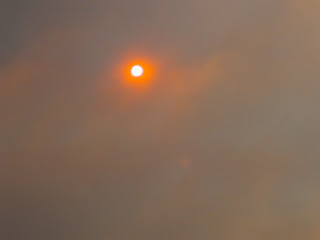A day or two ago my son climbed to the top of Island Peak in Nepal. Its summit is at 20,300 feet. The mountain is only two or three peaks away from Mount Everest. In the past few years my son has also climbed to the summit of Kilimanjaro in Tanzania, Aconcagua in Argentina, Elbrus in Russia, peaks in Ecuador, and throughout the sierras from Washington State to California.
This photo shows him a few feet from the summit of Island Peak.
How often in my teen years a good friend and I set out to explore the mountains to the north of us. The youthful desire to discover, find adventure, break away from adult constrictions, and stake a claim on independence pressed us to go beyond the asphalt streets and manicured lawns into wild territory. “Wild” territory was just following a stream that somehow managed to survive the shackles of neighborhoods and shopping centers.
I noticed one day about 1964 that this stream flowed along its gentle course adjacent to my high school, that it came from the north, and that to the north was a ridge of mountains. I reasoned that the stream must have a source somewhere within a few miles of us, and I suggested to my friend that he and I follow the stream until we found the spring that brought its waters to the surface.
For a number of Saturdays we hiked alongside that stream, passing through neighborhoods we’d never otherwise have known, cutting through fields, passing underneath rows of eucalyptus, and eventually coming into the foothills. When we got far enough away, we had to depend on our mothers to drive us to the place where we’d left off the previous Saturday afternoon, and pick us up eight hours later.
As we had feared that we might, once we entered the mountains we came to places we couldn’t get through on foot—steep slopes with Gordian tangles of briars and the like. We had to go around and then guess where the stream, ever narrowing, picked up. I’m pretty sure we did find its source—somewhere on a slope. The stream burbled down the incline into a narrow dell, turned to follow the decline, and went off to the points south where we’d come from. And it was obvious that the water had to emerge from the mountain at some place veiled in the briars. We considered our quest achieved.
By that time, though, finding the spring was only one reason we were hiking; we’d found so many hidden, rural places that our pleasure was not limited to completing our goal. We pressed on until we came to the peak of the mountain. There were four old pepper trees near the summit. Under their shade we ate our sack lunch and looked out over the valley in which dozens of incorporated little cities lay and a million people had their homes—including us. We returned to that small grove near a mountaintop several times over our teen years.
There is a theological reason why Moses met God on a mountaintop, why Jesus was transfigured on a mountain. Even the crucifixion took place on “Mount Calvary”. The term “mountaintop experience” refers to some sort of revelatory experience with God. Many people need at some time in their lives to be at the top of a mountain, whether it is low or lofty. The vision they are afforded must be literal as well as internal. Sometimes people need to see for miles and miles in all directions. Human minds and souls need remote horizons, not compaction.

